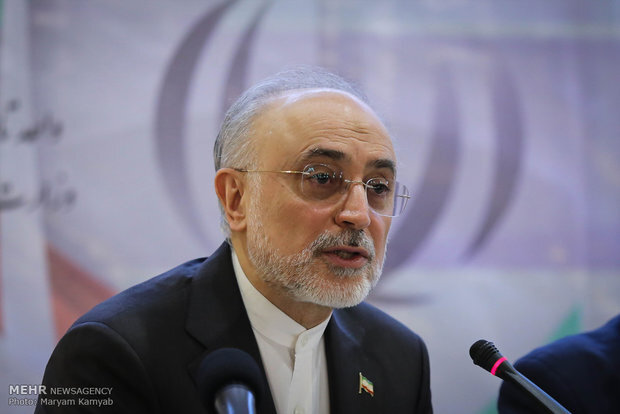Iran reiterates its reducing nuclear commitments is reversible

TEHRAN - Ali Akbar Salehi, director of the Atomic Energy Organization of Iran, on Monday insisted on Iran’s stated policy that Tehran’s action in reducing its commitments under the 2015 nuclear deal, known as the JCPOA, is reversible if the remaining parties to the agreement meet their obligations.
During a speech at the 63th Regular Session of IAEA General Conference in Vienna, he said it is the international community’s responsibility to preserve the JCPOA.
“Although the deal has been praised as an outstanding achievement of years of diplomatic efforts, respective states have failed to go beyond expressing regret ... It should be noted that Iran’s partial cessation of its commitments is reversible in case of full and effective implementation of the JCPOA by the remaining parties to the deal,” Sputnik quoted him as saying.
He added, “Against lifting of the nuclear-related sanctions, Iran has accepted some provisional limitations on its nuclear program and provided an unprecedented level of monitoring and access to the [International Atomic Energy Agency] IAEA in the context of new commitment under the additional protocol and the JCPOA itself. In this regard, it is not worthy that with only 3 percent of the worldwide nuclear facilities, Iran has provided almost 20 percent of all agency's accesses.”
Salehi says if the nuclear deal is not preserved, multilateralism will lose its efficiency and problems will not be solved peacefully.
Elsewhere, Salehi said that if the nuclear deal is not preserved, multilateralism will lose its efficiency and problems will not be solved peacefully.
U.S. President Donald Trump quit the nuclear deal in May 2018 and imposed the harshest ever sanctions on Tehran. However, Trump has been repeatedly calling for dialogue with Iran.
On May 8, exactly one year after the U.S. abandoned the deal, Tehran began to partially reduce its commitments to the agreement at bi-monthly intervals.
In the first stage, Iran announced that it will not limit its stockpile of the nuclear fuel to 300 kilograms allowed under the deal. However, on that date (May 8) Iran’s Supreme National Security Council (SNSC) said if the remaining parties to the JCPOA, especially Europeans, devise a mechanism to protect it from the sanctions effect in the two-month deadline it will reverse its decision.
But since European parties missed the deadline, on July 7 Iran announced that it has started enriching uranium to a higher purity than the 3.67%, thereby starting the second step.
As Europe missed the second 60-day deadline, Iran moved to take the third step, removing ban on nuclear research and development (R&D).
In a letter on September 5, Foreign Minister Mohammad Javad Zarif notified European Union foreign policy chief Federica Mogherini about Iran’s third step.
NA/PA
Leave a Comment